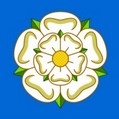Are we over-medicated?
45 posts
• Page 3 of 5 • 1, 2, 3, 4, 5
Re: Are we over-medicated?
My son is a doctor so I always have someone to run things past and someone who actually cares about us too which is good. However, he is inclined, in 9 times out of 10, to broadly agree with what the GP has said. This is about his father and not me because as I say I don't take meds yet. He did however, consult a cardiologist colleague about his father when he was waiting for a cardio appointment and got conflicting advice about cardioversion.
-

Paddypix - Posts: 959
- Joined: 30 Nov 2012, 21:39
- Location: N. Ireland
Re: Are we over-medicated?
Conflicting evidence is nothing new, but it is a worry, especially when both sides are not listened to. I remember a programme on C4, I think, at about the time of the debate about putting everyone over a certain age on statins. There was a very vocal group for the move and it got most of the attention, where those against were almost ignored. Two heart specialist interviewed on the programme insisted that the side effects were not worth the risk and that lifestyle advice was just as important.
Another thing I have noticed, and which raises my suspicions about how I am being treated, is that when I am asked about my heart problems by someone in the medical profession who is not my doctor they automatically know what drugs I am on or should be on. If I forget one from my list they can always fill in the blanks. This happened recently in A&E when I forgot to mention aspirin and atorvastatin, the doctor called them out straight away. This tells me that we are being treated in a mechanical fashion and not as individuals.
Another thing I have noticed, and which raises my suspicions about how I am being treated, is that when I am asked about my heart problems by someone in the medical profession who is not my doctor they automatically know what drugs I am on or should be on. If I forget one from my list they can always fill in the blanks. This happened recently in A&E when I forgot to mention aspirin and atorvastatin, the doctor called them out straight away. This tells me that we are being treated in a mechanical fashion and not as individuals.
-

Workingman - Posts: 22144
- Joined: 26 Nov 2012, 16:20
Re: Are we over-medicated?
I have very definite views on this subject and trust no one other than myself to decide what medication I should or should not take. when nearing 60 I chose some carefully to control BP which was high, cholesterol also high plus diuresis, coagulation and twinges of arthritis. I have been taking statins for many years and well I am still around.  On coming back here I go to an understanding gp who is happy to continue with my cocktail and give tem to me for free, I do feel a bit guilty though and do not think the NHS should provide free drugs for the elderly just for prophylaxis but human nature being what it is.
On coming back here I go to an understanding gp who is happy to continue with my cocktail and give tem to me for free, I do feel a bit guilty though and do not think the NHS should provide free drugs for the elderly just for prophylaxis but human nature being what it is. 
 On coming back here I go to an understanding gp who is happy to continue with my cocktail and give tem to me for free, I do feel a bit guilty though and do not think the NHS should provide free drugs for the elderly just for prophylaxis but human nature being what it is.
On coming back here I go to an understanding gp who is happy to continue with my cocktail and give tem to me for free, I do feel a bit guilty though and do not think the NHS should provide free drugs for the elderly just for prophylaxis but human nature being what it is. 
- pederito1
Re: Are we over-medicated?
To be fair most doctors do keep up with current thinking, and sometimes over time this can change. Patients are generally prescribed the drugs that work for the condition they have. If one drug does not work for a particular patient, the drug is withdrawn and another is tried. Although I am now retired I still work as a medical transcriber from home, mainly transcribing for hospital consultants. The care and attention these doctors give their patients is very apparent to me.
-

medsec222 - Posts: 1049
- Joined: 05 Feb 2013, 19:14
Re: Are we over-medicated?
Workingman wrote:Conflicting evidence is nothing new, but it is a worry, especially when both sides are not listened to. I remember a programme on C4, I think, at about the time of the debate about putting everyone over a certain age on statins. There was a very vocal group for the move and it got most of the attention, where those against were almost ignored. Two heart specialist interviewed on the programme insisted that the side effects were not worth the risk and that lifestyle advice was just as important.
Another thing I have noticed, and which raises my suspicions about how I am being treated, is that when I am asked about my heart problems by someone in the medical profession who is not my doctor they automatically know what drugs I am on or should be on. If I forget one from my list they can always fill in the blanks. This happened recently in A&E when I forgot to mention aspirin and atorvastatin, the doctor called them out straight away. This tells me that we are being treated in a mechanical fashion and not as individuals.
Statins turned me into a cripple, took me three months when I stopped taking them before I was back to normal.
-

KateLMead - Posts: 2407
- Joined: 26 Nov 2012, 13:11
Re: Are we over-medicated?
People taking statins should also take Co-Enzyme Q10 to ameliorate side effects
-

Kaz - Posts: 44032
- Joined: 25 Nov 2012, 22:02
- Location: Gloucester
Re: Are we over-medicated?
I did a bit of checking on cholesterol levels and came up with this article.
The HDL/LDL balance I already knew about. Something GP's never talk about.
Triglycerides also I learned about when I started doing the Atkins diet. It changed my long term view on what I eat and drink. It is, I also believe, responsible for my ongoing lower cholesterol levels....
A very quick search elicits this article.
Now here comes the FUN thing about GP and other doctors advice when you have a cholesterol count which is a little hight.
First they don't tell you which count is high. This is by far the most important fact to know as it determines how you are going to fight it.
Second they tell you to stop eating fat and eat low fat foods.
Third, when your cholesterol levels continue to rise, driven mainly by triglycerides and LDL as a side effect, they thrown Statins at you.
So if we look at low fat foods. What is a good low fat meal? Then refer to the quoted text above...
Breakfast only #7 is going to get you lower triglycerides.
Lunch a bit better but note the propensity to drop into danger ingredients
Dinner note the propensity to use very high carb levels to replace the fat. Especially such items so good for you as chips and roast potatoes....
It is any wonder that when we follow the advice of our doctors to lower our cholesterol levels, we drop our HDL and blast our triglycerides through the roof, with the carb intake?
Of course if you want to raise your HDL levels, then you need to do something else..
So what does a low fat "health plan" diet look like???
Let me see??
Let me try and translate that logic.
Such is the state of medical advice in the UK and the US today.... Which is why there are so many self help sites around trying to help people control this.....
I decline the accepted medical advice. Until what they say makes sense in an integrated way, then I'm not going to listen to a word they say.
If you still doubt what a truly high carb diet can do, go download SuperSizeMe and watch the doctor become firstly amazed and then seriously concerned at the blood work just from a month long binge on McDonalds. At one point the dieticians show how much sugar he has eaten. Then the doctors blame it mostly on the fat....
Now here's the real kicker. After a solid decade of low fat dieting, replacing fat with refined carbohydrates, the body starts to slow down processing sugars. If you go to your GP with type 2 diabetes, the first thing he'll try to do is put you on a "low fat diet"...........
What don't I like about that article I linked?
Actually the body can survive quite happily on a very high fat and protein diet with vitamin supplements. If you use fish as the protein instead of meat, your HDL even goes well up. Because the body is not trying to process sugar for energy, the sufferer tends to drop right out of type2 diabetes.
I'm going to stop now, it's getting boring.....
The HDL/LDL balance I already knew about. Something GP's never talk about.
Triglycerides also I learned about when I started doing the Atkins diet. It changed my long term view on what I eat and drink. It is, I also believe, responsible for my ongoing lower cholesterol levels....
A very quick search elicits this article.
What Factors Can Increase Triglycerides?
As with cholesterol, eating too much of the wrong kinds of fats will raise your blood triglycerides. Therefore, it’s important to restrict the amounts of saturated fats and trans fats you allow into your diet.
Triglyceride levels can also shoot up after eating foods that are high in carbohydrates or after drinking alcohol. That’s why triglyceride blood tests require an overnight fast.
If you have elevated triglycerides, it’s especially important to avoid sugary and refined carbohydrates, including sugar, honey, and other sweeteners, soda and other sugary drinks, candy, baked goods, and anything made with white (refined or enriched) flour, including white bread, rolls, cereals, buns, pastries, regular pasta, and white rice.
You’ll also want to limit dried fruit and fruit juice since they’re dense in simple sugar.
All of these low–quality carbs cause a sudden rise in insulin, which may lead to a spike in triglycerides.
Now here comes the FUN thing about GP and other doctors advice when you have a cholesterol count which is a little hight.
First they don't tell you which count is high. This is by far the most important fact to know as it determines how you are going to fight it.
Second they tell you to stop eating fat and eat low fat foods.
Third, when your cholesterol levels continue to rise, driven mainly by triglycerides and LDL as a side effect, they thrown Statins at you.
So if we look at low fat foods. What is a good low fat meal? Then refer to the quoted text above...
Breakfast only #7 is going to get you lower triglycerides.
Lunch a bit better but note the propensity to drop into danger ingredients
Dinner note the propensity to use very high carb levels to replace the fat. Especially such items so good for you as chips and roast potatoes....
It is any wonder that when we follow the advice of our doctors to lower our cholesterol levels, we drop our HDL and blast our triglycerides through the roof, with the carb intake?
Of course if you want to raise your HDL levels, then you need to do something else..
So what does a low fat "health plan" diet look like???
Let me see??
If you want to lose weight, you need to eat fewer calories per day than you burn off in exercise. Foods which are high in fat contain a lot of calories, so cutting down on fatty foods is one way of losing weight. Very sugary foods also contain quite a lot of calories, but fat contains about twice as many calories as sugar per 100 g.
Let me try and translate that logic.
In order to lose weight you have to stop eating fat because it contains more energy than sugar.
So, instead, what we're going to do is replace fat with sugars which will cause massive insulin bursts, blip the triglycerides and, when that energy burst is over, leave us feeling hungry but "virtuous". When we go back to the doctor our triglyceride levels will be so high and our HDL levels so low (because we dumped all those fatty foods which promote HDL), that the doctor will give us statins.
Such is the state of medical advice in the UK and the US today.... Which is why there are so many self help sites around trying to help people control this.....
I decline the accepted medical advice. Until what they say makes sense in an integrated way, then I'm not going to listen to a word they say.
If you still doubt what a truly high carb diet can do, go download SuperSizeMe and watch the doctor become firstly amazed and then seriously concerned at the blood work just from a month long binge on McDonalds. At one point the dieticians show how much sugar he has eaten. Then the doctors blame it mostly on the fat....
Now here's the real kicker. After a solid decade of low fat dieting, replacing fat with refined carbohydrates, the body starts to slow down processing sugars. If you go to your GP with type 2 diabetes, the first thing he'll try to do is put you on a "low fat diet"...........
What don't I like about that article I linked?
Type 2 diabetes, once known as adult-onset or noninsulin-dependent diabetes, is a chronic condition that affects the way your body metabolizes sugar (glucose), your body's important source of fuel
and
There's no cure for type 2 diabetes, but you may be able to manage the condition by eating well, exercising and maintaining a healthy weight.
Actually the body can survive quite happily on a very high fat and protein diet with vitamin supplements. If you use fish as the protein instead of meat, your HDL even goes well up. Because the body is not trying to process sugar for energy, the sufferer tends to drop right out of type2 diabetes.
I'm going to stop now, it's getting boring.....
There are 10 types of people in the world:
Those who understand Binary and those who do not.
Those who understand Binary and those who do not.
-

Suff - Posts: 10895
- Joined: 26 Nov 2012, 09:35
Re: Are we over-medicated?
Quite a few articles of the type I avoid, Suff.
We now appear to know so much, and there are experts out there all vying to get their version of events across that they contradict each other.
My take is that we have evolved as omnivores with the result being that we can eat a little bit of everything and we will be fine. Well, we will be fine if we leave processed foods alone. I avoid them as best I can as I am convinced that they are the catalysts for many of our illnesses.
I am also convinced that my heart problems stem from being on a high dose of diclofenac for the months the medics were trying to find the correct dose of allopurinol to control the gouty arthritis in my knees. It certainly damaged my stomach as I am now on Lansoprazoe for life. If I go without for a few days I am doubled up with stomach pain and can hardly take any food. The thing is that during the investigations into my knees my BP was checked regularly as were my liver, kidneys etc. through blood tests. All of those were fine, the only thing out of bounds was uric acid - the cause of gout. Yet a soon as my heart started playing up, which was the day I was discharged from the gout clinic, I was put on the drugs as a precaution.
We now appear to know so much, and there are experts out there all vying to get their version of events across that they contradict each other.
My take is that we have evolved as omnivores with the result being that we can eat a little bit of everything and we will be fine. Well, we will be fine if we leave processed foods alone. I avoid them as best I can as I am convinced that they are the catalysts for many of our illnesses.
I am also convinced that my heart problems stem from being on a high dose of diclofenac for the months the medics were trying to find the correct dose of allopurinol to control the gouty arthritis in my knees. It certainly damaged my stomach as I am now on Lansoprazoe for life. If I go without for a few days I am doubled up with stomach pain and can hardly take any food. The thing is that during the investigations into my knees my BP was checked regularly as were my liver, kidneys etc. through blood tests. All of those were fine, the only thing out of bounds was uric acid - the cause of gout. Yet a soon as my heart started playing up, which was the day I was discharged from the gout clinic, I was put on the drugs as a precaution.
-

Workingman - Posts: 22144
- Joined: 26 Nov 2012, 16:20
Re: Are we over-medicated?
Workingman wrote:Quite a few articles of the type I avoid, Suff.
We now appear to know so much, and there are experts out there all vying to get their version of events across that they contradict each other.
My take is that we have evolved as omnivores with the result being that we can eat a little bit of everything and we will be fine. Well, we will be fine if we leave processed foods alone. I avoid them as best I can as I am convinced that they are the catalysts for many of our illnesses.
Good as an ethos for when things are fine. Not very good when it comes down to difficult times. One of the best phrases I ever heard to describe this was
"When a patient has an unbalanced condition such as diet, then the treatment must also be unbalanced". That, for me, is the whole crux of the thing. You say that we evolved as omnivores. We certainly did. Our subspecies (sapiens), also evolved, mainly, over the last 130,000 years. Of which the better part of 110,000 years was an ice age.
What this means is that they were strictly fixed to seasons for food. So our bodies and chemistry, inherited from them, is narrowly defined around specific principles. Give us a touch of sugar in any form and our bodies will switch, in a few hours, from burning fat to storing fat. The mechanism is well known and also resilient. It won't go back to burning fat until it has been denied sugar for a reasonable period of time. The two switches are not equal and for good reason. Because in winter the only food available would have been other animals or any nuts hoarded from the Autumn. Heavily protein based food. The body burning it's own fat.
Again, when the body burns fat it changes our chemistry and reactions. We become more lethargic, this is understandable, we don't want to be running around when there is little food around. Fat is a very high value food, giving us twice the energy of sugar. So we don't need so much of it, so our bodies slow down the burn. After all we're not running around are we?
None of what I've said is a mystery, you will find it in almost every unbiased article on food and nutrition. Even on the insulin wiki page which states that
It regulates the metabolism of carbohydrates and fats by promoting the absorption of glucose from the blood to skeletal muscles and fat tissue and by causing fat to be stored rather than used for energy
In short, inject carbohydrates into your system (not just sugar) and store fat.
Now is a good time to remember that cholesterol is a fat and triglycerides are fatty acids.
So, to follow the reasoning of the unbalanced diet, you must force the body to stop storing fat and start burning it. In short, stop eating sugars of any form and replace it with foods which have the opposite effect such as protein and fat.
Take the above and then put it together with the medical professions cure for all "diet related" issues such as obesity, heart disease or diabetes. That cure is the "low fat diet". Or, in short, massive injections of carbohydrates and massive reduction in fats.
If anything I have written above is being believed, then this would, now, start ringing some bells....
Added to that is the problem that sugars are addictive. I related to SuperSizeMe in my last post. If you go and watch it, you will observe the early stages of substance abuse and addiction to a "narcotic" like substance. Namely sugar.
Learning about the modern diet is an educational process. Not everything you learn is good. As for 5 a day and a "balanced" diet? Only if you have a balanced body chemistry and are of the correct, balanced, weight for an adult human in early summer of 100,000 years ago.... Great for kids who just need better vitamin and mineral balance. Disaster for the 20st lardass 15 year old being fed fruit juice and chips as two of his "5 a day".....
So whilst I may read pages you try to avoid, I find that these pages follow sound scientific fact. Interesting that the medical profession is doing something else.............
There are 10 types of people in the world:
Those who understand Binary and those who do not.
Those who understand Binary and those who do not.
-

Suff - Posts: 10895
- Joined: 26 Nov 2012, 09:35
Re: Are we over-medicated?
The bottom line is that being fat is bad for you  Most of us are, and the best thing any of us can do for our health (aside from stopping smoking, if we do) is to achieve a healthy weight.
Most of us are, and the best thing any of us can do for our health (aside from stopping smoking, if we do) is to achieve a healthy weight.
 Most of us are, and the best thing any of us can do for our health (aside from stopping smoking, if we do) is to achieve a healthy weight.
Most of us are, and the best thing any of us can do for our health (aside from stopping smoking, if we do) is to achieve a healthy weight.-

Kaz - Posts: 44032
- Joined: 25 Nov 2012, 22:02
- Location: Gloucester
45 posts
• Page 3 of 5 • 1, 2, 3, 4, 5
Return to News and Current Affairs
Who is online
Users browsing this forum: No registered users and 18 guests

